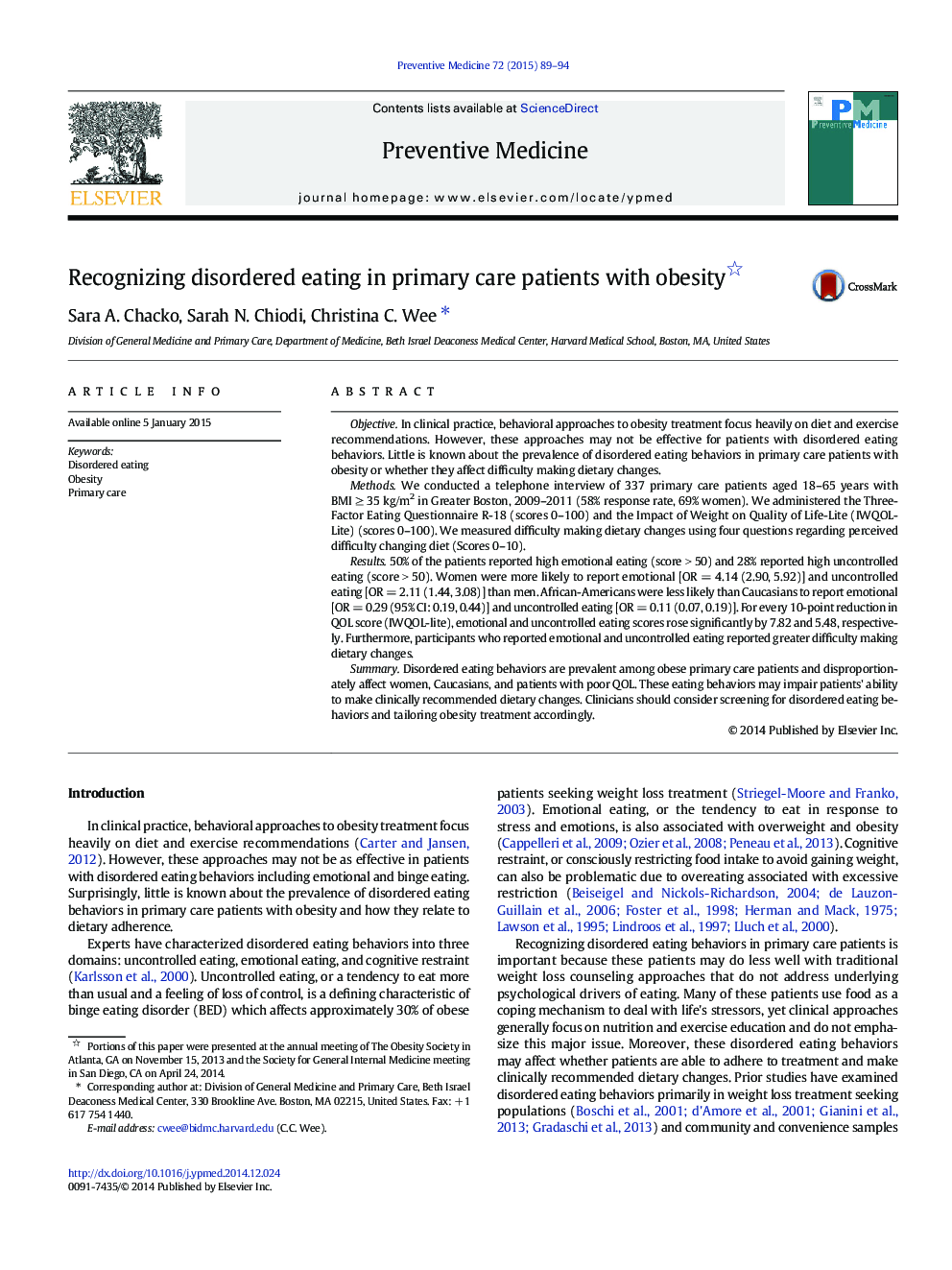| Article ID | Journal | Published Year | Pages | File Type |
|---|---|---|---|---|
| 3100389 | Preventive Medicine | 2015 | 6 Pages |
•Disordered eating behaviors are prevalent in primary care patients with obesity.•Women, Caucasians, and patients with poor quality of life are most affected.•Patients with disordered eating report greater difficulty making dietary changes.•Clinicians should consider screening for disordered eating in patients with obesity.
ObjectiveIn clinical practice, behavioral approaches to obesity treatment focus heavily on diet and exercise recommendations. However, these approaches may not be effective for patients with disordered eating behaviors. Little is known about the prevalence of disordered eating behaviors in primary care patients with obesity or whether they affect difficulty making dietary changes.MethodsWe conducted a telephone interview of 337 primary care patients aged 18–65 years with BMI ≥ 35 kg/m2 in Greater Boston, 2009–2011 (58% response rate, 69% women). We administered the Three-Factor Eating Questionnaire R-18 (scores 0–100) and the Impact of Weight on Quality of Life-Lite (IWQOL-Lite) (scores 0–100). We measured difficulty making dietary changes using four questions regarding perceived difficulty changing diet (Scores 0–10).Results50% of the patients reported high emotional eating (score > 50) and 28% reported high uncontrolled eating (score > 50). Women were more likely to report emotional [OR = 4.14 (2.90, 5.92)] and uncontrolled eating [OR = 2.11 (1.44, 3.08)] than men. African-Americans were less likely than Caucasians to report emotional [OR = 0.29 (95% CI: 0.19, 0.44)] and uncontrolled eating [OR = 0.11 (0.07, 0.19)]. For every 10-point reduction in QOL score (IWQOL-lite), emotional and uncontrolled eating scores rose significantly by 7.82 and 5.48, respectively. Furthermore, participants who reported emotional and uncontrolled eating reported greater difficulty making dietary changes.SummaryDisordered eating behaviors are prevalent among obese primary care patients and disproportionately affect women, Caucasians, and patients with poor QOL. These eating behaviors may impair patients' ability to make clinically recommended dietary changes. Clinicians should consider screening for disordered eating behaviors and tailoring obesity treatment accordingly.
